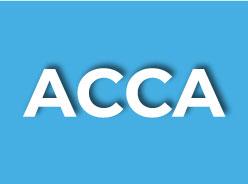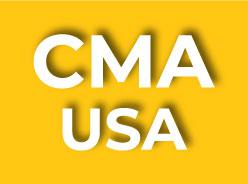Just like much else, our education system has also come to a halt due to the Coronavirus, but this need not put a stop to your learning. Most students and teachers agree that even though we are going through unchartered waters, it’s crucial that students remain positive, focused and get themselves ready for the examinations.
“Outside of following health officials’ protocols, the best thing that students can do for their exams is to look at the school closures as an extended study break rather than a complete holiday,” says Dr David Cosgrave, an exam coach said.
Whatever solution is found when it comes to exam schedules, students in no way should be unprepared or at a disadvantage compared to others.
Planning
Set your own plan, you could follow the schedule you would normally use when you are in Campus, but that doesn’t suit you could study the tougher topics/subjects in the morning and others in the evening. Create a plan that works for you!
Also, identify what your needs are whether it is technology or getting an e-book and discuss it with your parents. There is no point getting the resources six weeks later, arrange for things now.
Quality not Quantity
It doesnt matter if you sit staring at your book for 11 hours if no studying is actually taking place. Set 2 hours for the most important topics which you can complete in the morning, preferably before breakfast.
The focus should be on the quality of the study and not the quantity.
The closing of schools somehow increases the likelihood of students wanting to be forced to study, and this is counterproductive. Shorter time periods are more beneficial when it comes to maintaining concentration. Bite-size chunks are definitely better than a huge block right before the exams. Exams are a marathon and not a sprint!
Try active studying
Active studying is a simple way of asking questions before, during and after studying. This will not only help you to remain more focused when you are studying but will also help you to fine-tune during the next studying session.
Questions to ask before studying
- What am I about to learn?
- What do I already know about the subject?
Questions to ask while you are studying
- How does this information first in the bigger picture?
- Do I understand what I just read?
- Are there any ideas or keywords that I need to write down? Are there any ideas or keywords that are important?
Questions to ask after studying
- What can I take away from this study session?
- What do I need to review or learn next time?
Dedicated workspace
At a home with many family members, it is important to find a study space that is distraction-free. Keep the area organised and clean
Avoid the kitchen table if possible, as you are also eating here, being there at multiple times during a day will make you hate the spot. Also constantly moving your books and notes will also break your momentum. Chances are that once you keep your books away you will also stop studying completely.
Set a time that works for you
Many people maybe night owls and others would be early birds. Understand the time where you would work productively. Don’t force yourself to work when your brain isn’t functioning at its best.
Regular contact
Don’t isolate yourself completely. Have healthy discussions over skype or other video calling services. Having constant discussions about topics, resources or worksheets etc will keep you thinking differently.
Exam practice
It’s a perfect time to understand the formats and marking schemes of the exams like its back of your hands. Simulate exam conditions, and practise many mock exams. Discuss topics you were unclear off and improvise your learning strategy.
Engage with your learning
Just like how you would take notes while studying, have a notebook and pen handy and keep distractions minimum. Take some time to look at your timetable and work out study schedules to ensure that you are well prepared.
Take proper exam breaks
This may be common advice, you don’t necessarily have to stick to a 9-5 schedule. Identify the time periods that are the most productive for you and centre your studies during that time period.
Taking regular breaks will keep your mind fresh and is one of the easiest ways to make sure that you don’t burn out. Step away from the laptop or books every hour or so, whether it is reading a chapter of your book, watching tv or anything that relaxes you.
Also, keep a clear cut-off point at the end of the day so you feel like you have completed well and can relax afterwards. Try and shut off the laptop or pack away your books so that you get a sense of closure.
Make the most of your study time
Although it may seem convenient, studying at home can end up being counterproductive - procrastination and distraction can occur easily. But with a bit of planning and organization, it can be very effective. Try and follow some of the steps mentioned above so that you can make the best use of your study time.

 ABOUT LAKSHYA
ABOUT LAKSHYA  WHY CHOOSE LAKSHYA
WHY CHOOSE LAKSHYA  MISSION AND VISION
MISSION AND VISION  CHARTERED ACCOUNTANCY (CA)
CHARTERED ACCOUNTANCY (CA)  ACCA
ACCA  CMA-USA
CMA-USA  RESULTS
RESULTS 


